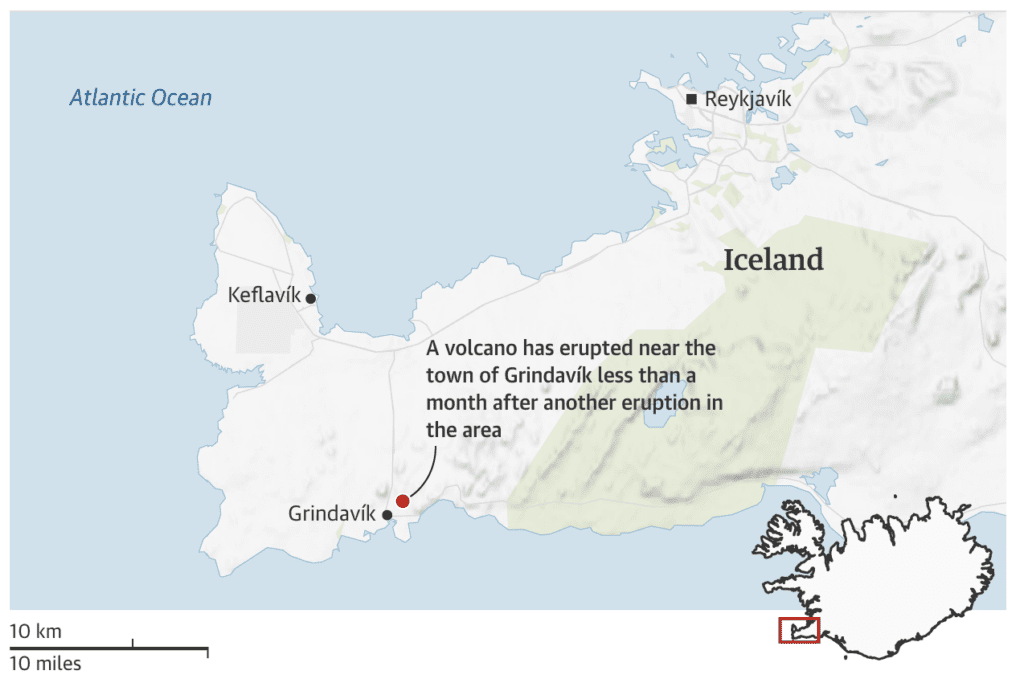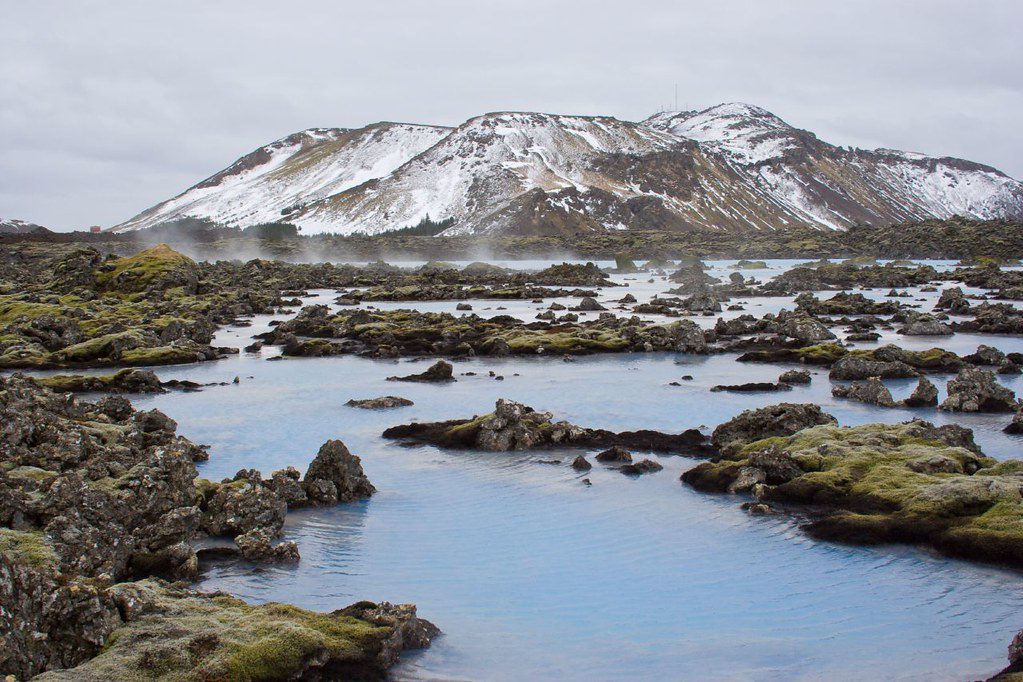A new fissure eruption started on Reykjanes Peninsula on April 1st, 2025 by Sundhnúksgígar crater, marking the eight eruption in the area since December 2023. Fortunately, Iceland is a very vast country and the rest of Iceland was unaffected by the seismic activity and continues to welcome visitors.
Key Takeaways:
- Air traffic to and from Iceland operates normally, and the country remains a safe destination.
- The eruption’s effects are localized to the eruption site with road closures and do not threaten people.
- All services in Iceland are operating normally.
Since February 24, 2021, scientists at the Icelandic Meteorological Office have been carefully monitoring increased seismic activity on the Reykjanes Peninsula, which is considered a possible precursor to a longer period of volcanic eruptions in the area. This development resulted in a series of on- and off-going eruptions, on the Reykjanes Peninsula. Volcanic activity has recently returned when lava flow resumed in the area. All residents had previously been evacuated from the town of Grindavík located near the eruption site. Iceland generally remains unaffected, and daily life outside of Grindavík proceeds as normal.
Iceland is situated on the Mid-Atlantic Ridge, where the North American and Eurasian tectonic plates diverge, making it one of the most active volcanic regions in the world. Regular seismic events, ranging from minor tremors to significant earthquakes, are a characteristic feature of Iceland’s geology. Seismic activity in Iceland is often due to magma movement beneath the earth’s crust. It may sometimes result in magma seeking the easiest path to the surface and becoming a volcanic eruption.
The Icelandic Met Office, in collaboration with the Department of Civil Protection and Emergency Management and a team of scientists from the University of Iceland, is actively monitoring the situation and thoroughly analyzing any unfolding developments. Iceland is no stranger to volcanic activity. Eleven eruptions have occurred on the Reykjanes Peninsula in the last four years. Icelandic authorities and the public are highly prepared for such events, and Iceland has one of the world’s most effective volcanic preparedness measures. Iceland’s geoscientists possess vast experience in dealing with volcanic activities.

Since earthquakes began in late October 2023, you might be wondering whether it’s safe to visit Iceland. Scientists at the Icelandic Meteorological Office are closely monitoring earthquakes near Grindavík on the Reykjanes peninsula and any irregular activity will be reported promptly. Fortunately, Iceland is a very vast country and the rest of Iceland is unaffected by the seismic activity and continues to welcome visitors.
As a precaution, the Blue Lagoon has been temporarily closed. Since the situation remains dynamic and with your safety and comfort in mind, we have come up with alternative options such as the Sky Lagoon, Hvammsvik Geothermal Baths or our buggy tour. We are very used to dealing with uncertainty in Iceland when it comes to the weather and nature. Your safety and overall experience is the most important thing to us. Flights to Iceland, along with the Ring Road, the main route around the country are unaffected. This means you can go ahead with your trip in Iceland.
You can read more about our extended travel insurance here and our book and travel with confidence policy.
Updated: 1 April, 2025
Is there a volcanic eruption happening in Iceland?
There is an active volcanic eruption in Iceland at the moment. The eruption started on 1 April, 2025, near Grindavík on the Reykjanes Peninsula. The town had previously been evacuated, and people were not in danger. Preliminary reports suggest that the lava flows are more voluminous than the previous eruptions. Fortunately, Iceland is a very vast country and the rest of Iceland is unaffected by the seismic activity and continues to welcome visitors.
How far are the earthquakes from Reykjavík?
The earthquakes are happening close to Þorbjörn mountain, which is about 40 kilometres (25 miles) from Reykjavík. The authorities say people are not in any immediate danger.
Is it safe to visit Iceland?
Yes, it’s safe to visit Iceland. There are no flight disruptions due to the earthquakes and the main road around Iceland. At the moment, there is no need to cancel your trip to Iceland.
Nature can be unpredictable and the current situation may change, we are closely following updates from the authorities. We will do our best to keep all of our travellers informed about anything that could impact their travel plans.
Will this affect my flights?
At this moment flights in and out of Iceland are operating on schedule. The Reykjanes peninsula experienced volcanic eruptions in 2021, 2022, and earlier in July 2023, which did not disrupt ongoing tours or flights. Scientists believe that flights are unlikely to be affected if there’s another eruption in the area.
Can I visit Reykjavik?
Yes, it’s safe to visit Reykjavík. The earthquakes are currently occurring near þorbjörn mountain, which is around 40 kilometres (25 miles) away from the Icelandic capital.
What happens if I need to cancel?
Our updated cancellation insurance makes sure that you can book your trip with more confidence. You can rebook your luxury tour, on one occasion, without any change fees. Or you may cancel your trip for any reason with the following terms:
- More than two weeks prior to arrival: 30% of the full amount becomes credit
- Less than two weeks prior to arrival: 50% of the full amount becomes credit
- Less than 72 hours prior to arrival: No refund and no credit
You can read more about our extended travel insurance here and our book and travel with confidence policy.
We always recommend all travelers to get comprehensive personal travel insurance. Please note that the credit is only valid for 12 months from the date the cancellation is received and will go against your new similar trip total cost for new selected dates. All cancellations need to be sent in writing to [email protected].
